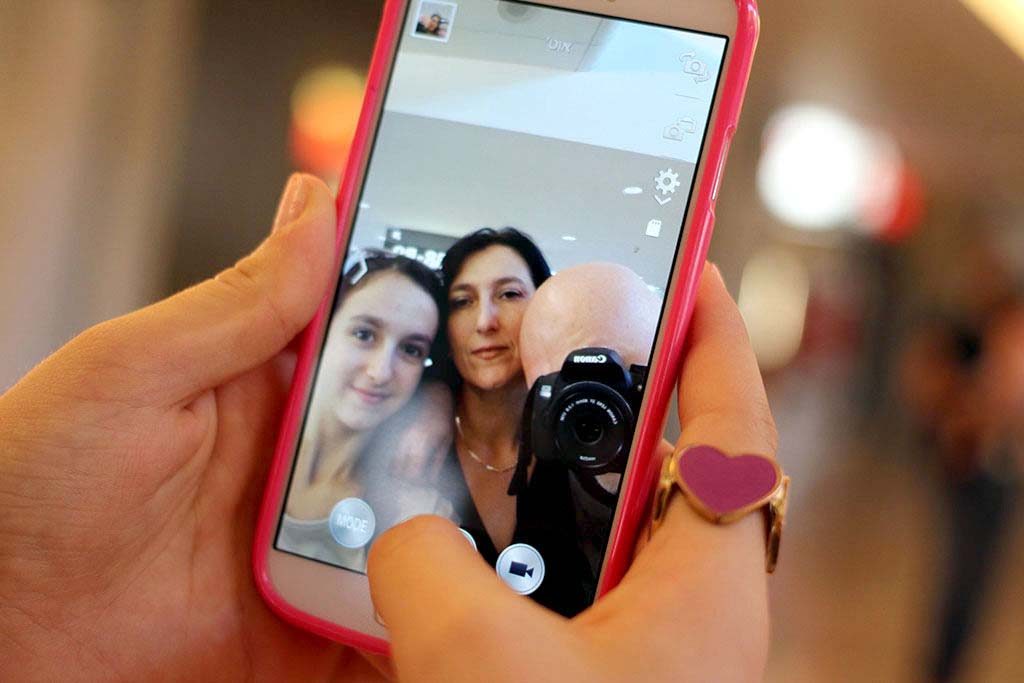
Dozens of women in Qatar have reportedly had their mobile phones and social media accounts hacked, and their private photographs posted widely online.
The hacking spate has prompted the Ministry of Interior (MOI) to issue advice to residents on how to improve the security of their accounts and prevent theft, particularly of photos from phones.
In the past week, more than 33 women reported their phones had been hacked into, and photographs put up on public Instagram and other social media accounts, Arabic newspaper Al Watan said.
Some of the victims were reportedly then blackmailed by the unnamed hacker.
Victims discussing their attacks on WhatsApp and through social media this week soon realized that they were part of a wider campaign, and reported the security breaches to the MOI’s Cybercrime Combating Center (CCCC), which has been investigating.
Security advice
The CCCC declined to comment to Doha News on the issue.
However, the center’s first lieutenant Oweida Abdullah Al-Nuaimi advised residents in a series of tweets in Arabic this week how to improve security of mobile devices and social media accounts.
Key tips include:
- Do not publish personal data online;
- Use strong passwords for all online accounts;
- Do not use the same password for all accounts;
- Use a two-step verification process, including password and mobile phone number; and
- Avoid opening links from unknown sources.
If there is suspicion that an account has been hacked, immediately change the password and sign out of the account on all devices.
Prompt reporting of the incident to the cybercrime unit will help investigators track down the hacker, Al-Nuaimi added.
من اساليب ارتكاب الجريمة الإلكترونية الاصطياد (phishing) باستخدام الهندسة الاجتماعية للحصول على البيانات الشخصية وبيانات البطاقات الائتمانية
— وزارة الداخلية – قطر (@MOI_Qatar) February 24, 2016
Translation: One of the methods cyber crimes are committed is phishing by using social engineering in order to obtain personal information and credit card data.
الابتزاز يقع بعد جمع البيانات والمعلومات الشخصية للمجنى عليه خاصة اذا كان يستخدم ايميل واحد في مختلف صفحات التواصل #الجريمة_الالكترونية
— وزارة الداخلية – قطر (@MOI_Qatar) February 24, 2016
Translation: Blackmail takes place after the gathering of the victim’s personal data and information, especially if the victim uses the same email in different social media pages.
Securing and protecting personal pictures is best done by not allowing applications to access photographs or personal data, and to ensure that users properly read and understand the terms of apps before agreeing to them and installing them, he added.
In a discussion of the recent attacks on the Arabic chat forum Qatar Shares, some commentators said women should avoid taking any personal photos on their mobile.
Al Nuaimi also warned against using social media to publicly insult others, saying this could result in criminal action against the user, and reminded residents of the remit of Qatar’s cyber crime law, which came into effect in September 2014.
ينص قانون الجرائم الالكترونية على عدم نقل او تداول أي معلومات او بيانات أو أخبار دون التأكد من مصادرها الرسمية #الجريمة_الالكترونية
— وزارة الداخلية – قطر (@MOI_Qatar) February 24, 2016
Translation: The cyber crime law stipulates that information, data and news not be disseminated without verifying from their official sources.
These recent hacking cases are not the first time that the MOI has warned residents about security of photographs.
In summer 2014, a number of women reported blackmail after personal data was stolen while their phones were being repaired in shops.
Some 35 men were arrested after being caught copying photos and videos stored on customers’ phones without their knowledge, then threatening to share the data on social media in an attempt to extort huge sums of money.
Suspected attacks can be reported to the Cybercrime Combating Center by calling 2347444 or email [email protected].
Have you been affected by these attacks? Thoughts?







